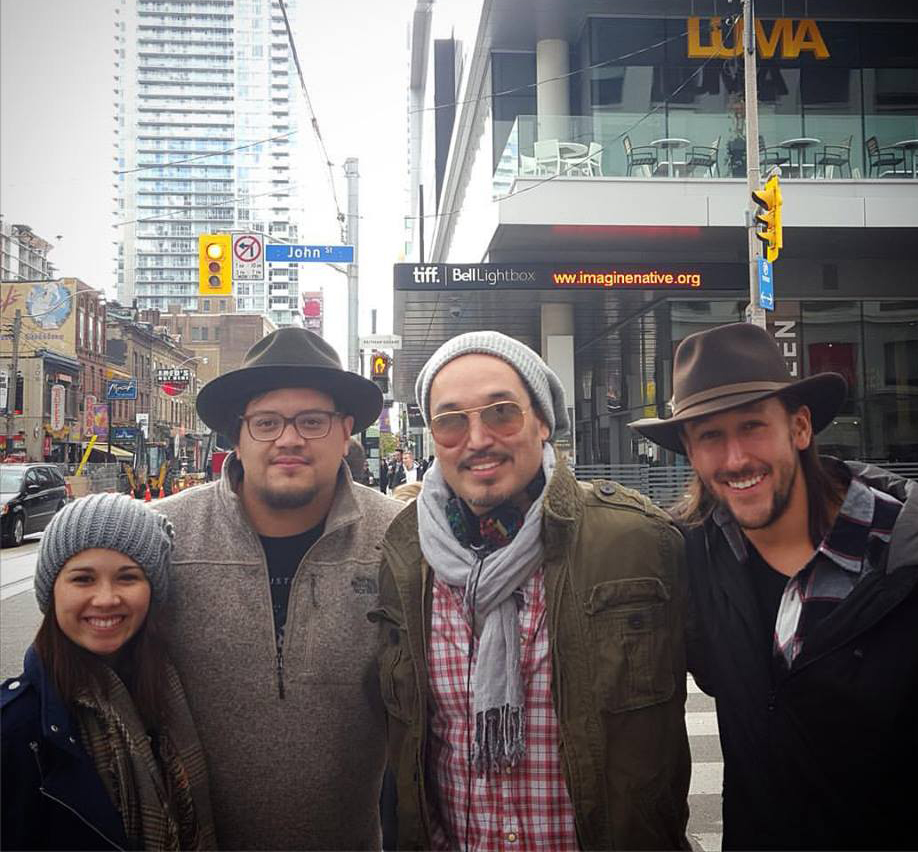
Words often used to describe the typical Loyola Marymount MBA student are driven, ambitious, intelligent, curious and inspiring. Spend 10 minutes inside one of the program’s evening courses, and a wonderful diversity begins to reveal itself. Students hail from various industries and backgrounds, bringing with them work experience that ranges from extensive to next-to-none. In this series, we scour our B-school student body for standout individuals to see how the LMU MBA Program has benefited them—and how they plan to apply their hard-earned degree.
Meet Blake Pickens, 2nd year MBA student and independent film producer.
With an MFA from the USC School of Cinematic Arts, two fellowships at the Sundance Institute and a film in consideration for screening at the iconic festival, Blake is already an LA success story. Currently in post-production for his first feature film The Land with two more on the way in 2016 (Bexar County and The Last Cult), Blake sat down to discuss his burgeoning career in The Biz and how he manages to balance it all while pursuing an MBA.
What was your educational and work background prior to joining the LMU MBA program?
I was a business and pre-med major at University of Oklahoma for three years. I always wanted to move out to Los Angeles to work in the film industry, so I thought I’d become a plastic surgeon in order to get to LA. But that was not the right track for me, so three years in to my undergraduate degree, I switched to film and media studies in the middle of Oklahoma, where there is no film or media, with the idea that somehow it would all work out. Despite not having any connections to the industry, I ended up getting an internship at National Lampoon one summer, so I moved out to LA for three months. Three weeks in, they hired me to write for them full time. I used that internship to help me to get into the USC School of Cinematic Arts, where I went to the Peter Stark Producing Program (MFA). While there, I just hustled every day and tried to make things happen. Most students viewed it as a few years of school with the assumption that the USC name would help them get a job, while I viewed it as my first two years working in the industry. I graduated spring of 2014 and the following summer produced my first movie.
Tell us about the process of getting a film made.
I’m currently working on a film called The Land with my producing partner Stephen Love. We’re working with Charles King of Macro Ventures, and it’s actually the first film his company has invested in. We started the project two years ago, when we were looking for a thesis project, taking pitches from writers and reading screenplays. This one writer/director had an idea to explore middle and high school skateboarders in LA who were financing their skateboarding by selling drugs on the side. The whole concept was that this can happen in, and is in fact happening in, all urban areas. It’s a phenomenon. We developed it from there through the script stage and started putting all the pieces together like the cast, the music, the director of photography, and the editor, in order to get financed. Once we raised the money for it, we went to Cleveland for three months for preproduction and production.
During that time, I submitted the project and became a fellow in the Sundance Native American Producing Lab and the Sundance Feature Film Producing Lab, and they’ve been supporting the project for a year now. We picture lock November 20th and then we’ll be working on music with Erykah Badu and Nas. If we don’t get into Sundance Film Festival, we’ll show it at Toronto or another big festival where there’s a market, and then get distribution from there.
Why did you choose the LMU MBA program?
I don’t see any career where an MBA doesn’t help you, and that’s especially true for what I’m trying to do. When I seek support from financiers, they say: “You do art. Why should I trust you with money?” An MBA gives me the ability to show that I understand more than just art, I understand a successful film is a combination of art and commerce. The degree gives me more credentials in that way. I chose LMU because I needed to be on the west coast, and needed something to work with my schedule, which is always in flux. LMU is the only place that allows for that, works with your career and what you’re trying to do. Other schools are intent on the MBA being a dedicated two years of your life. At LMU, it’s intense but in that way, it’s different.
How do you plan to apply your degree?
I’ll use the MBA to support my endeavors. I don’t want to just make indie films. I want a deal with a studio and to run my own production company. I think pairing art and commerce is the best way to achieve that.
Best piece of advice for an MBA student?
While it’s important to network via the career events and to meet all the companies that have a relationship with LMU, your greatest resources are sitting right next to you in class. The person on your left could easily be the person who gives you a job, or makes an introduction to your dream company. Networking on your level is one of the most valuable things you can do while at LMU because you’ll all rise together.
By Emily Lundquist, MBA ’17



